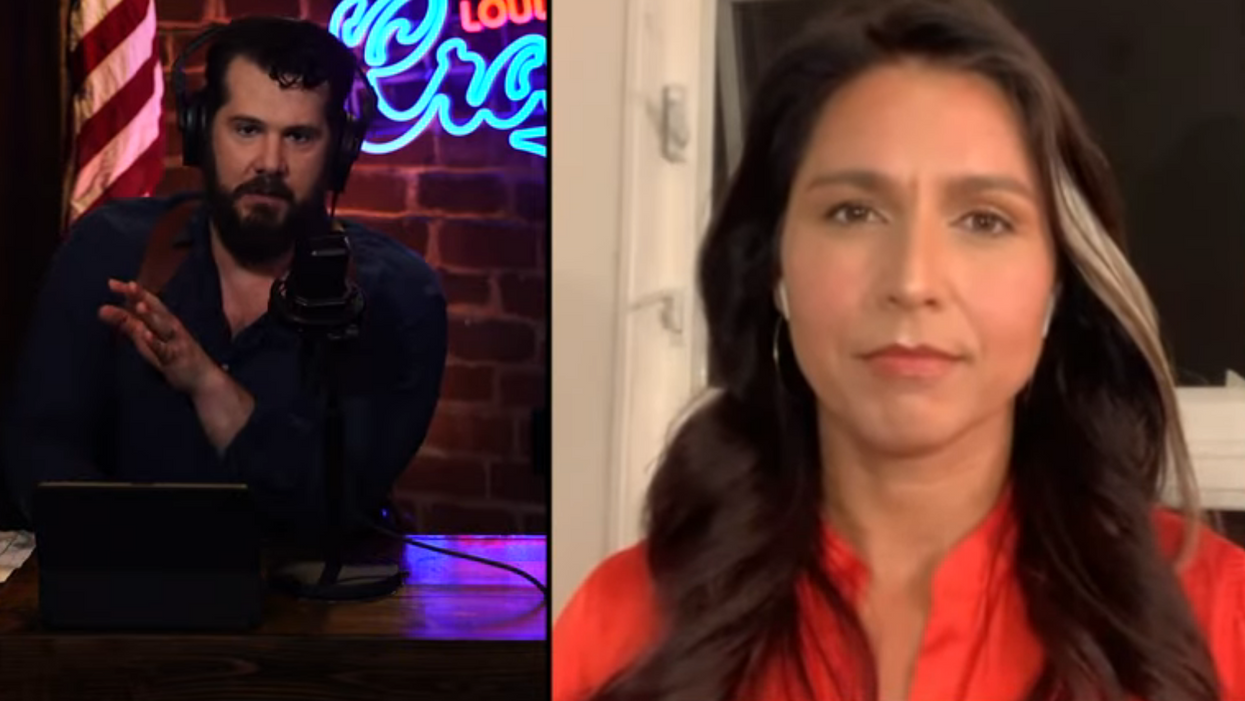
Image Source: YouTube screenshot

The former Democratic lawmaker said this is an issue everyone should agree on
Former Democratic presidential candidate and Hawaii representative Tulsi Gabbard decried big tech censorship during a recent interview with Steven Crowder, calling it a threat to Americans' constitutional right to free speech.
Gabbard — who recently warned that "domestic enemies" in big tech and the national security community, such as Rep. Adam Schiff (D-Calif.) and former CIA Director John Brennan, are plotting to create a "police state" in America — argued Monday that big tech's threat to free speech is one of the most dangerous issues facing the country.
For years, giant tech companies such Facebook, Twitter, and YouTube have been scrutinized for arbitrarily censoring speech without consequence. But in recent months, the debate over their power has intensified amid the decision by several companies to ban former President Donald Trump from the platforms.
"Fundamentally as Americans, we agree on our constitutional right to free speech, [but now we] have these big tech monopolies essentially deciding who has a voice and who doesn't in these virtual public town squares that they've created," Gabbard lamented, adding, "You also have people in great positions of power in our government, for partisan or political reasons, trying to decide who gets to be heard and who doesn't, just further inflaming the divisiveness and really, truly undermining our constitutional rights."
"When we look at big tech and their ability to essentially act with impunity to do whatever they want — and making billions of dollars in the process — it speaks to the very dangerous place we are as a country," she continued.
Gabbard called Trump's removal from social media platforms a major indicator of how "dangerously powerful these big tech monopolies have become."
"Big tech does not get to be the decider of who has a voice in America and who doesn't," she stated.
Bruce Springsteen's Super Bowl Hypocrisy | Tulsi Gabbard Guests | Louder with Crowderwww.youtube.com
Though the problem is great, according to Gabbard, the "fix" is actually "quite simple."
It lies in the hotly debated part of the U.S. legal code known as Section 230, which is intended to protect private companies blocking and screening offensive material. During his presidency, Trump, who was frequently the target of big tech censorship, advocated for reforming the law, along with Gabbard.
On Monday, Gabbard once again expressed support for reform, suggesting, "You just change the line where it says, essentially, big tech has the authority to remove 'objectionable content' — how much more vague can you get than that? Objectionable to who or for what reason? — but then the thing that comes after that is the most troubling part. It says, 'whether it is constitutional or not.'"
"How that got into our nation's laws and policies is beyond me," she said.
In 47 U.S. Code § 230, it states: "No provider or user of an interactive computer service shall be held liable on account of ... any action voluntarily taken in good faith to restrict access to or availability of material that the provider or user considers to be obscene, lewd, lascivious, filthy, excessively violent, harassing, or otherwise objectionable, whether or not such material is constitutionally protected."
You can watch Crowder's full interview with Gabbard on BlazeTV.com.